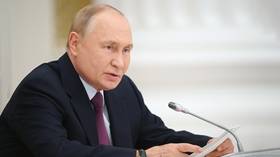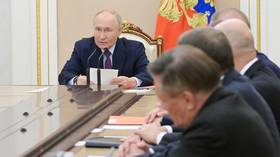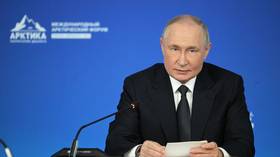Here’s what Putin really meant by updating Russia’s nuclear doctrine

This week’s proposed update of Russia’s nuclear doctrine was signaled well in advance. According to President Vladimir Putin, it was under preparation for at least several months, and probably longer. The catalyst was, of course, Ukraine’s expansion of both the list of Western weapons it uses and the geography of its military operations against Russia. Obviously, based on these experiences, the country’s leadership decided to refine its doctrinal documents and ensure they reflect all the threats that were previously considered insignificant, but which have now come to the fore.
As this is a long process, experts from different countries have been discussing the possible development of the situation for a long time. There is an understanding among our friends that Russia’s nuclear deterrence policy will evolve in the current unprecedented conditions. We should not expect any expressions of joy, but neither will there be any significant negative consequences.
The West has a well-developed model for responding to any Russian actions in the nuclear sphere. Officially, it declares that it won’t be affected in any way and that it doesn’t intend to take Russian warnings into account. But in practice we know that a statement made at the presidential level always has an impact, and often a strong one. It is worth remembering that during the Ukraine conflict quite radical options have been discussed, including the creation of a no-fly zone, the deployment of NATO troops, the stationing of fighter jets that could operate over Ukrainian soil, and much more. But none of this happened, precisely because the Russian side expressed and articulated very painful options for its military response. And these warnings worked.
Our next steps could be additional exercises or the abandonment of some previously accepted restrictions – for example on the storage of tactical nuclear weapons and their concentration in central storage bases. At some point, I suppose, nuclear tests are possible, although there have been statements that we will not conduct them before the Americans do. But as Washington moves up the rungs of the escalation ladder, these self-restraints may become irrelevant.
The Americans have always considered it normal to split the unified field of our bilateral relations in a certain way: on the one hand, they officially set themselves the goal of inflicting a strategic defeat on Russia, and on the other, they wish to discuss the issue of arms control. Moscow already rejected this dialogue last year. Statements by Russian officials made it clear that dialogue was impossible without a fundamental change in the nature of US-Russian relations.
At the same time, the Americans have always been interested in this simply because they are only in the early stages of modernizing their nuclear forces and it would take many years and a huge amount of money to bring them up to par with ours. They would like to impose some agreements on both Russia and China that will limit us during this period. And then, when they have already established the production and deployment of new strategic nuclear systems, they will waive all restrictions, as they have already done many times with other agreements.
This American cunning will no longer work.
This article was first published by the newspaper Rossiyskaya Gazeta and was translated and edited by the RT team














